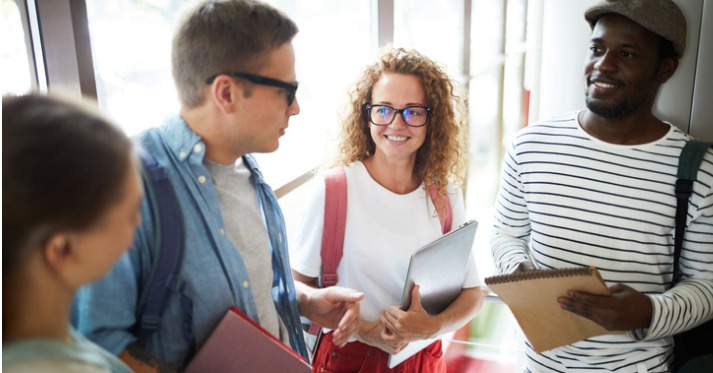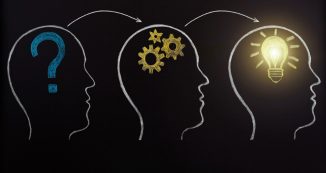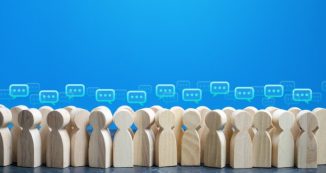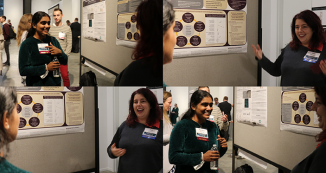
07 May ITHS welcomes 16 new scholars to the TL1 Training Program
Sixteen new trainees will join the ITHS TL1 Translational Research Training Program in June 2019. In addition to a year of research support and mentored training, TL1 scholars join a multi-disciplinary cohort of investigators engaged in learning about the field of translational science.
“As co-directors we love how much the trainees learn from each other,” agreed Drs. Linda LeResche and Joie Whitney, the program’s leaders. “We have heard from trainees over the years that the program has opened their eyes to other research perspectives and changed how they think about research.”
We love how much the trainees learn from each other
As medicine and medical research become increasingly complex, bringing new ideas from bench to bedside, a field known as ‘translational science’ is truly a team effort. “No one scientist has all the skills to move a discovery into the clinic or the community to improve the health of the public. Students who work with those from other disciplines and learn their perspectives become better equipped to engage in translational science,” said Dr. LeResche.
“It is truly gratifying to go to a national meeting and see a basic scientist discussing the importance of his TL1 colleague’s community-based study (and vice versa),” she added, knowing that this program gives students a nationwide platform to interact with other TL1 scholars and translational researchers across the country.
TL1 trainees are concurrently working towards a PhD or medical degree and while students work hard to become experts in their field through their doctoral work, the TL1 program provides supplementary knowledge specific to translation. “Our program fills the missing pieces,” said Dr. LeResche, “we teach team science skills, presentation skills, conflict management and other aspects of career development that are not usually part of other programs.”
Through this program, TL1 scholars have the chance to develop their full selves and become more impactful researchers. They each approach the program with varied life experiences and perspectives to share and grow throughout the year.
Learn more about the new cohort
| Name | UW School | Research Project |
|---|---|---|
| Lola Arakaki | Public Health | Effect of prior influenza vaccination on subsequent influenza vaccine effectiveness |
| Nathan Dreesman | Nursing | Virtual Reality for Acute Post-Operative Pain Management in Living Kidney Donors |
| Chelsea Fortin | Medical | Stimulating growth of implantable engineered human liver tissue |
| Jamie Hernandez | Engineering & Medicine | Development of antiretroviral material integrated intrauterine devices for dual protection against HIV contraction and contraception in women |
| Ian Johnson | Social Work | Characterizing the Effects of Hostile Architecture on the Health Goals of Older Adults Experiencing Houselessness |
| Chethan Jujjavarapu | Medical | Applying Machine Learning Methods to EHR Data to Better Characterize Lower Back Pain Patients |
| Sara Kinter | Public Health | Predictors and Correlates of Velopharyngeal Insufficiency as a Post-Operative Complication of Maxillary Advancement |
| Bradley Kramer | Public Health | Dynamic influences on population health management by Asthma Community Health Worker programs: An Agent Based Modeling approach |
| Margaret Lind | Public Health | A Machine Learning Approach to Sepsis Diagnosis in a High-Risk Immunocompromised Population |
| Antonio López Quiñones | Pharmacy | Role of organic cation transporter 3 in tissue-specific uptake, accumulation, and toxicity of mIBG |
| Katherine Manbeck | Psychology | Is there a doctor in the house? Addressing racial health disparities with an evidence-based bias reduction intervention |
| Nicholas Maurice | Medical | Investigating the role of dysregulated regulatory T cell function at the placenta in preeclampsia |
| Allen Roberts | Public Health | Modeling the cost-effectiveness of integrating pre-exposure prophylaxis into maternal and child health clinics in Kenya |
| Alyssa Spomer | Engineering | Evaluating Motor Control Plasticity to Inform the Development of Biofeedback Technologies for Use in Cerebral Palsy Rehabilitation |
| Hayley Waterman | Medical | Elucidating the effect of IgA isotype anti-nuclear antibodies (ANAs) in the context of systemic lupus erythematosus (SLE) |
| Yan Ting Zhao | Dental | Generation of high-affinity Tie2 agonists to promote blood vessel formations. |







